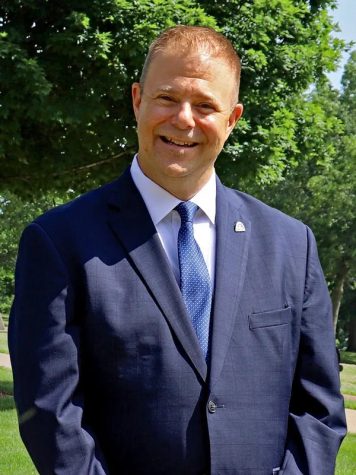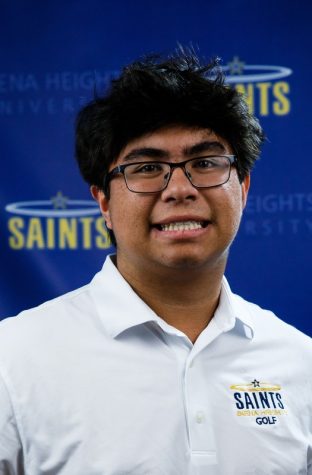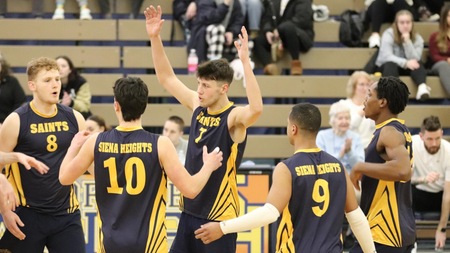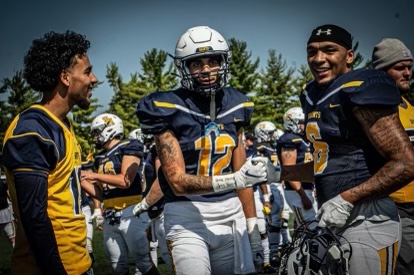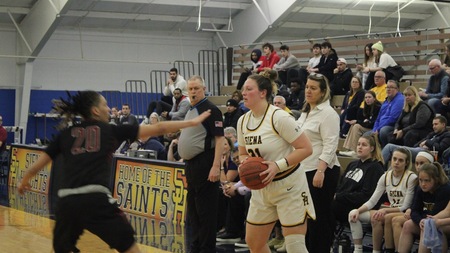Speakers Share Truth Behind Human Trafficking
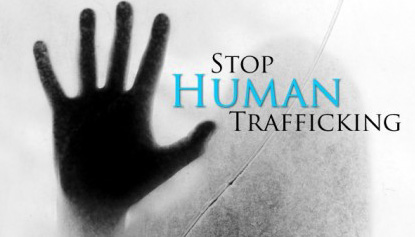
On Monday, Jan. 26, Siena Heights University had the opportunity to listen in on a human trafficking presentation by Kelly Castleberry and Dr. Julie Barst. Jocelyn Near and Patrick Wallace each sang a song to get the audience engaged and ready for the talk.
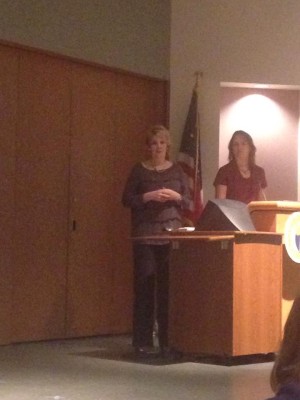
Ohio is most popularly known for the famous Rock and Roll Hall of Fame, but there is a serious problem occurring there and all around the world. A report shows that Ohio had 98 arrests for human trafficking in 2014. Human trafficking is the harboring or transferring of people by force, fraud, and coercion. In 2005, the U.S. State Department stated in a report, “Each year, an estimated 600,000-800,000 men, women, and children are trafficked across international borders (some international and non-governmental organizations place the number far higher), and the trade is growing.”
People tend to enter the trade around ages 12 to 14, and once they have, there is a seven-year limit of chances to help recover them. Dr. Julie Barst explained how, in a world where Halloween costumes of pimps and prostitutes are so popular, we are glamorizing prostitution, which is the oldest form of slavery. They presented pictures of what a slum in Cambodia looked like and the true horror it is.
Domestic human trafficking victims say that they can’t relate to the pictures of what human trafficking is “supposed” to be. Statistics are hard to come by because some people don’t consider themselves “trafficked” because they were not blind-folded or gagged. These women are promised job opportunities and voluntarily commit to traffickers. They soon find out they were lied to and coerced to moving to a different country.
“Our fight against human trafficking is one of the great human rights causes of our time, and the United States will continue to lead it — in partnership with you. The change we seek will not come easy, but we can draw strength from the movements of the past,” President Obama said at the Clinton Global Initiative annual meeting.
Castleberry says, “Woman and children are predominantly sex trafficked. It does happen to males, and those are usually young males. When it comes 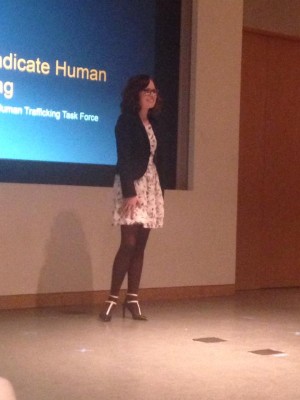 to labor trafficking it is equally men and women.” Women choose to give their young daughters up to these traffickers because the lives they describe can be better than the lives they live now with no food, no money, and the poorest living conditions.
to labor trafficking it is equally men and women.” Women choose to give their young daughters up to these traffickers because the lives they describe can be better than the lives they live now with no food, no money, and the poorest living conditions.
It is difficult for a jury to prosecute someone because there has been very little in the past, and persons tend to flee as soon as they find an escape from their traffickers. Theresa Flores, a human trafficking survivor in Detroit, Mich., founded S.O.A.P., which “stands for ‘Save Our Adolescents from Prostitution’ and is a hands-on outreach to fight sex trafficking at large events and in communities,” according to TraffickFree.com.
S.O.A.P. is engraved with a hotline number for human trafficking and placed in hotel rooms so that women who are at events know they have somewhere to call and receive help. Events like The Detroit Auto Show, the Super Bowl, and other big events are the prime places for human traffickers to be.
Castleberry shared, “I believe the best way to bring awareness is to teach someone the facts about human trafficking. Then ask that person to go teach two more people. Spread the word. When people are educated our hope is that they will not continue to consume products made by slaves. This, most definitely, is one of the biggest human rights travesties of our time. We will all have a part in eradicating human trafficking.”

